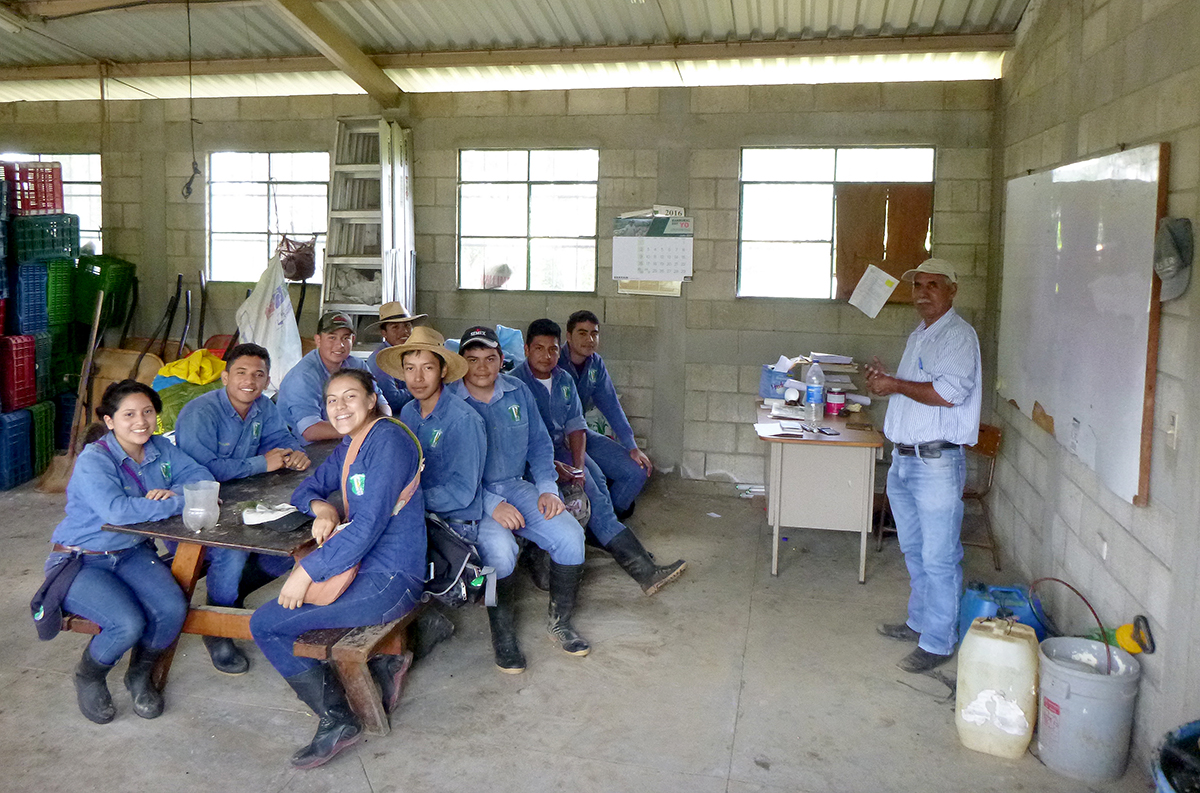CIRED to work on improving agricultural training in Guatemala

Working with John Ignosh, advanced extension specialist, Department of Biological Systems Engineering and Virginia Cooperative Extension, and Henry Quesada, associate professor, Department of Sustainable Biomaterials, College of Natural Resources and Environment, CIRED successfully participated in a proposal to the Millennium Challenge Corporation (MCC) in Guatemala to strengthen agricultural technical and vocational education and training (ATVET) at the Escuela Nacional Central de Agricultura (ENCA). ENCA, a public school that offers secondary degrees in agriculture and forestry, is expected to play a major role in improving the agricultural workforce. MCC is an independent U.S. government foreign aid agency.
The $1.2 million, 2-year project will be led by GOPA Consultants, a private consulting company based in Germany that currently works with MCC-Guatemala on improving education and training. The other consortium partner is EARTH University in Costa Rica.
Nearly 70 percent of the population in Guatemala lives in poverty, many of whom work in agriculture.
About 30 percent of Guatemalan youth work in the agriculture sector, but lack basic agricultural skills as well as the knowledge needed to be gainfully employed. The project will focus on improving linkages between the agro-forestry curricula and employment opportunities. Additionally, the project will strengthen teaching at ENCA.
To gather information for the proposal, Ignosh andJulieta Mazzola, a professor at EARTH University, carried out a scoping mission to ENCA where they met with staff to learn about ENCA’s strengths, and challenges for future growth.
One of the goals is to reposition the school to be a more effective provider of education and training for the agricultural sector.
The strategies include: updating administrative policies and curriculum design to better prepare ENCA for academic standardization and regional/international certifications; and equipping ENCA to meet the needs of students with diverse economic and cultural backgrounds.
During discussions, school leaders identified technical expertise as an institutional strength, but also expressed the need to improve capacity in pedagogy. They communicated their interests in teacher professional development, including postgraduate education with emphasis on pedagogy and learning processes.
John Ignosh served as an agroforestry extensionist with the U.S. Peace Corps in Guatemala from 2002-04. Henry Quesada, who is an extension specialist supporting renewable-based industries in Virginia and internationally, collaborated with Ignosh and EARTH University to conduct field interviews in Central America to identify opportunities to strengthen ATVET systems.
In 2016, with support from the USAID InnovATE project managed by CIRED, Ignosh and Quesada conducted a study on how countries carry out their ATVET programs. They found that having more accessible and useful ATVET programs that teach sustainable agricultural practices are important goals for many countries.
However, they also showed that ATVET programs are largely outdated, under-resourced, and not relevant to the economic and environmental challenges of countries in the region.
This results in producers practicing agriculture and forestry methods that are not productive or sustainable, leading to the degradation of natural resources, as well as graduates that are not equipped with adequate skills to meet current and future sector needs.
In April 2017, InnovATE convened a workshop on Opportunities for a Teacher Certificate Program in ATVET in Central America at EARTH University. The workshop sought to determine if a regional certification program would be attractive to ATVET stakeholders in the region. Forty-two representatives from Guatemala, El Salvador, Honduras, Nicaragua, Costa Rica, and the United States participated, including ATVET teachers and directors, policy makers from ministries of education and agriculture, industry representatives, NGOs, and donor agency representatives. The participants overwhelmingly endorsed the idea of a regional teacher certificate program. While the MCC-Guatemala project does not include a regional certificate program, it does position CIRED and its partners to address the ATVET challenges at ENCA, which may lead to future opportunities to develop such a program.


